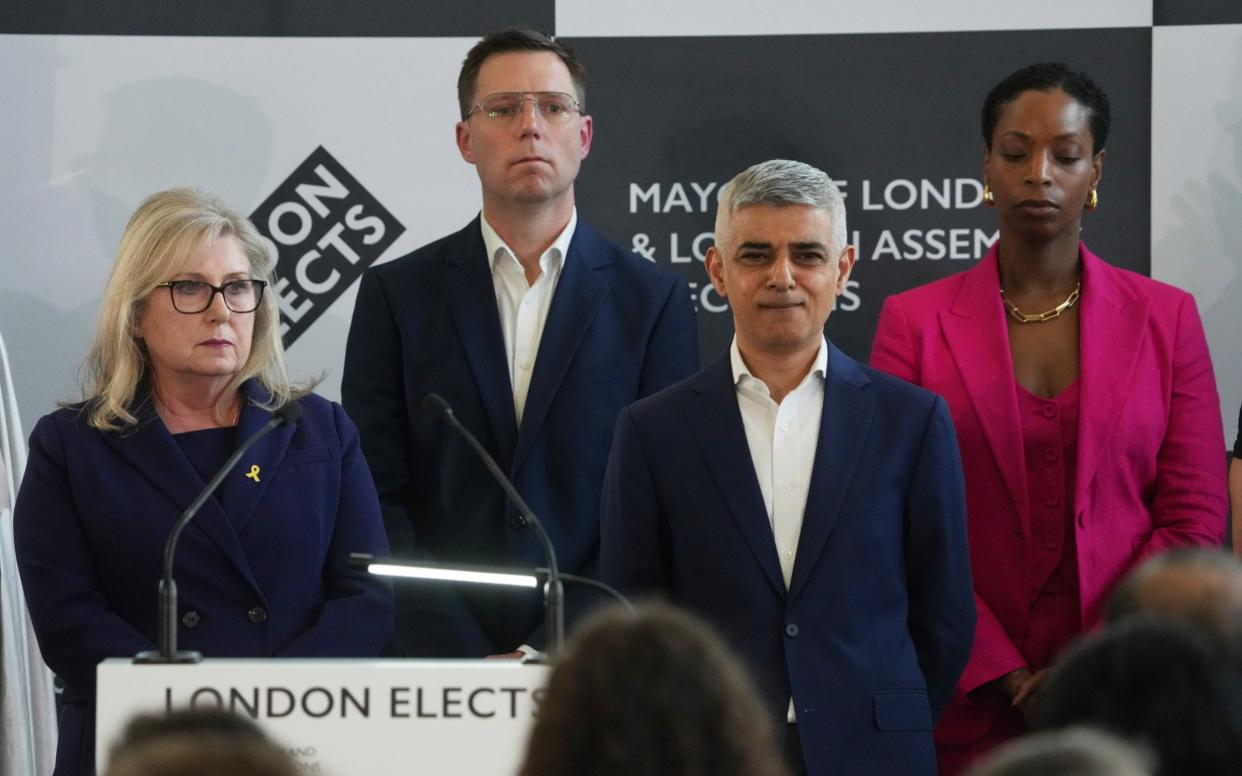A bleak day for the Conservative Party

There is little point in sugar-coating the results of last week’s local and mayoral elections. Almost across the board, they were bad for the Conservatives.
In London, Sadiq Khan has won an unprecedented third term with an increased majority. Andy Street’s knife-edge result in the West Midlands came despite his personal popularity and his incontrovertible successes as mayor. The last results to be declared by councils completed the picture of Tory gloom, with further losses of councillors.
It is vital that the party does not learn the wrong lessons from this political bruising. That danger is particularly acute in London, where pundits are already suggesting that the Conservatives’ fundamental mistake was to choose a candidate who was too “Right-wing”, that her campaign was too “divisive”, and that they should have shifted towards the so-called centre ground instead.
Susan Hall – who suffered some unforgivably nasty attacks on her character – should not be turned into a scapegoat for the Tories’ losses. Yes, London ought to have been winnable for the party. In the Ulez rebellion, they had a ready-made populist revolt, ripe for being exploited. The housing situation has become intolerable for many. Violent crime – including attacks on police officers – is now of massive and growing concern to Londoners. And Mr Khan’s mismanagement of the transport network gave ample room for the party to articulate an alternative.
Nor is the capital a “Labour city”, as even some Tories seem to think, with an inbuilt progressive majority. Ms Hall’s 32.7 per cent share of the vote was higher than the Conservative share nationwide. It is often forgotten that 40 per cent of Londoners voted for Brexit, while the Conservatives dominated swathes of the capital – including parts of the centre – until quite recently.
Boris Johnson won two terms as mayor, and not by governing as a municipal socialist. At the centre of his first victory was opposition to the expansion of the congestion charge zone. He campaigned on lower taxes for Londoners. The Conservatives should have chosen a higher-profile candidate with existing name-recognition: if you are to win from the Right in London, you need an existing platform and an independent streak.
But there was nothing wrong with Ms Hall’s political strategy given the constraints of an extremely unpopular Conservative government. If she had not put opposition to Ulez expansion at the heart of her campaign, if she had not repeatedly attacked Mr Khan’s weakness on crime, it is quite possible that the Tories would have done even worse. She did not receive anywhere near enough support from the national Conservative Party, which failed to capitalise on the huge government bailouts to Transport for London.
If she had moved Left, many more Right-wing voters would surely have either stayed at home, or backed Reform. The real lesson from Mr Khan’s victory in the London mayoral race is that he was able to benefit from Labour’s dominant position in the national polls, though he appears much less popular than Sir Keir Starmer’s party.
His win also illustrates the flaws inherent in the current system of devolution. When it was introduced by the Blair government, it was claimed that it would guarantee better decision-making, more tailored to the interests of local people. Power that had been hoarded in Westminster and Whitehall would flow back to the people, who would hold their new political leaders accountable for their mistakes.
It has not worked out that way at all. British devolution does not resemble the American federal system – in which tax competition encourages state leaders to pursue growth-friendly policies, and state governors are genuinely accountable to their voters. It has tended to produce leaders who take credit for anything good that happens, while blaming central government for any failures.
Reforming this broken system is becoming increasingly urgent. But, for now, the Conservatives must concentrate on improving their standing in the national polls. Rishi Sunak has taken some promising steps in recent weeks in areas such as defence spending, welfare reform and immigration. He must go further. The party has a great deal to do to win back younger voters, many of who, fairly or not, blame it for the housing crisis. Home ownership has long been a pathway to conservatism, and it is one that should not be shut off. Finding a way to build more homes in and around London will be essential. Mr Sunak should also address the taxes and regulations devastating nightlife.
Sir Keir has not yet sealed the deal with the electorate, and many voters remain rightly concerned about what a Labour majority government would bring. The policies pursued by the likes of Mr Khan in London, or the devolved Labour government in Wales, show that the party’s instincts remain to raise taxes, crush enterprise and exploit net zero as an opportunity to impose authoritarian measures on groups such as drivers.
But if they are to defeat Labour, the Conservatives must themselves be clear to the electorate about what they believe. That will not be achieved by shifting to the supposed centre ground, or by seeking to steal the Left’s clothes. It will be achieved by governing with conviction as conservatives.


